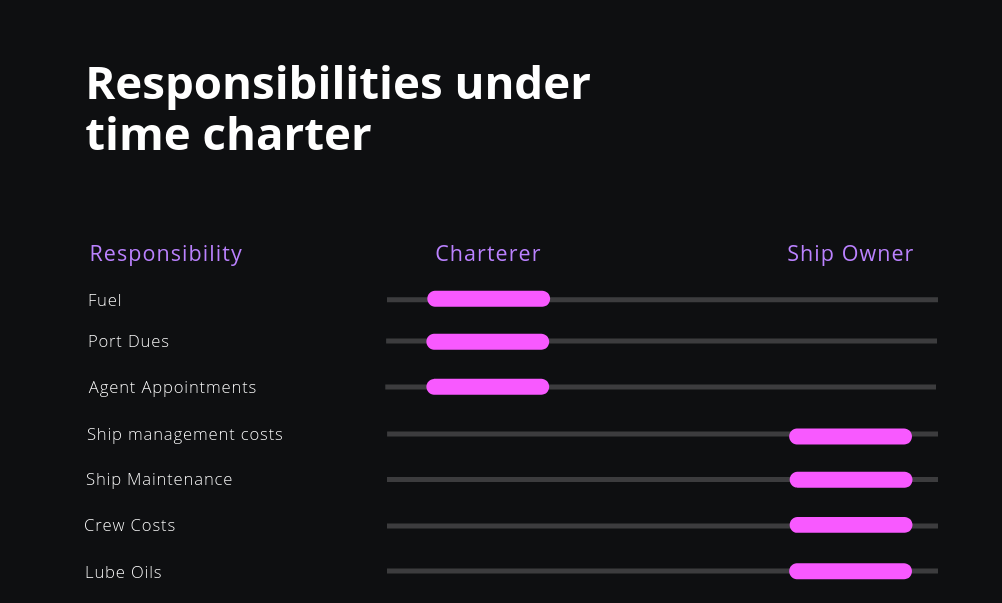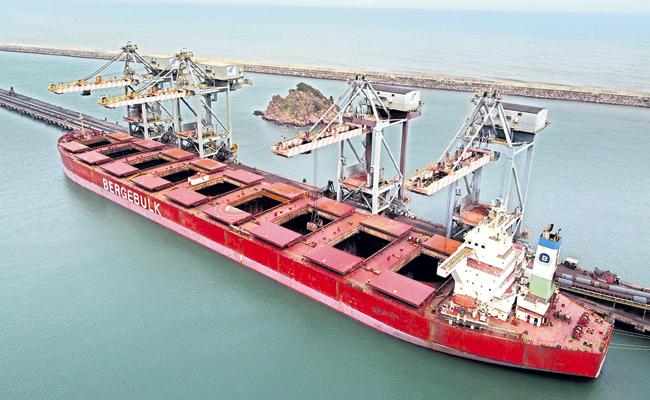Ways to Contract Freight Transportation
In this BLOG, we will discuss some of the most common methods for contracting freight transportation
lunes, 23 de septiembre de 2024
Time charter
A time charter is a maritime contract where a shipowner leases an entire ship to a charterer for a specified period of time. This type of arrangement is commonly used for transporting large quantities of bulk commodities, such as grains, coal, ores, and fertilizers.
Key features of time charters:
- Entire ship: The charterer leases the entire vessel, rather than a specific space within it.
- Bulk commodities: Time charters are primarily used for transporting goods that are loaded and unloaded in bulk, without individual packaging.
- Voyage or time charter: Bulk charters can be for a single voyage or for a specified period of time.
- Freight rates: Freight rates for bulk charters are typically calculated based on the weight or volume of the cargo, the distance traveled, and the current market conditions.
- Ballast: The charterer is responsible for paying the costs of ballasting the ship before and after loading the cargo.
Disadvantages of bulk charters
- Market volatility: Freight rates for bulk charters can be highly volatile, subject to fluctuations in supply and demand.
- Risk management: Charterers must carefully manage the risks associated with the voyage, including the potential for delays, damage, or loss of cargo.
- Specialized knowledge: Chartering a bulk vessel requires specialized knowledge and expertise in maritime law and shipping practices.
Advantages of bulk charters
- Flexibility: Bulk charters offer flexibility in terms of the quantity and type of cargo, as well as the shipping route.
- Cost-effective: For large quantities of bulk commodities, bulk charters can be more cost-effective than other modes of transportation.
- Control: Charterers have greater control over the transportation process, including the choice of ship, the loading and unloading operations, and the route.
Types of bulk charters
Bulk Charter
A bulk charter is a maritime contract where a shipowner leases an entire ship to a charterer for a specific voyage or period of time. This type of arrangement is commonly used for transporting large quantities of bulk commodities, such as grains, coal, ores, and fertilizers.
Key features of bulk charters:
- Entire ship: The charterer leases the entire vessel, rather than a specific space within it.
- Bulk commodities: Bulk charters are primarily used for transporting goods that are loaded and unloaded in bulk, without individual packaging.
- Voyage or time charter: Bulk charters can be for a single voyage or for a specified period of time.
- Freight rates: Freight rates for bulk charters are typically calculated based on the weight or volume of the cargo, the distance traveled, and the current market conditions.
- Ballast: The charterer is responsible for paying the costs of ballasting the ship before and after loading the cargo.
Disadvantages of regular line transportation
- Limited flexibility: May not be suitable for urgent or time-sensitive shipments.
- Higher costs: Can be more expensive than other modes of transportation, especially for smaller shipments.
- Port congestion: Delays may occur due to port congestion or other factors.
Suscribirse a:
Comentarios (Atom)
-
Freight transportation is the process of moving goods from one location to another. Contracting for freight transportation involves selectin...
-
Flexibility: Bulk charters offer flexibility in terms of the quantity and type of cargo, as well as the shipping route. Cost-effective: Fo...
-
Market volatility: Freight rates for bulk charters can be highly volatile, subject to fluctuations in supply and demand. Risk management: ...







